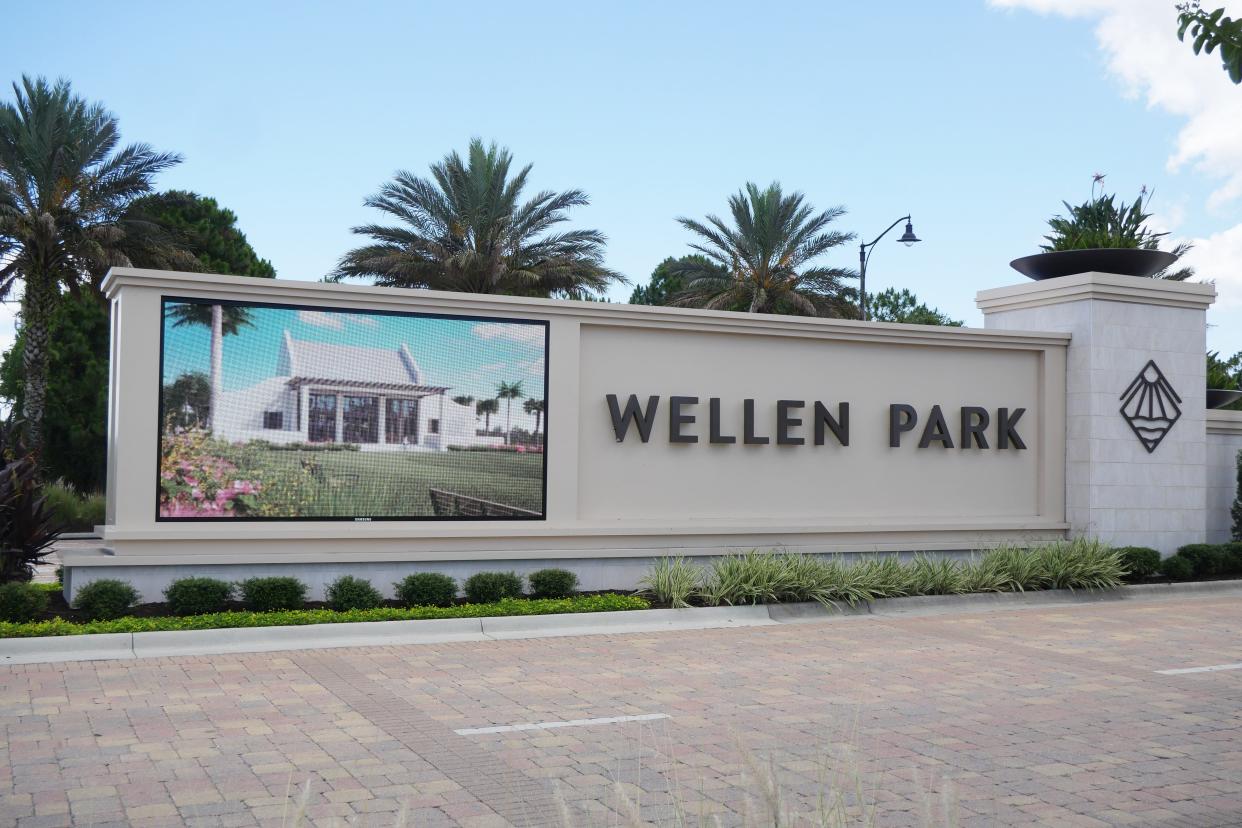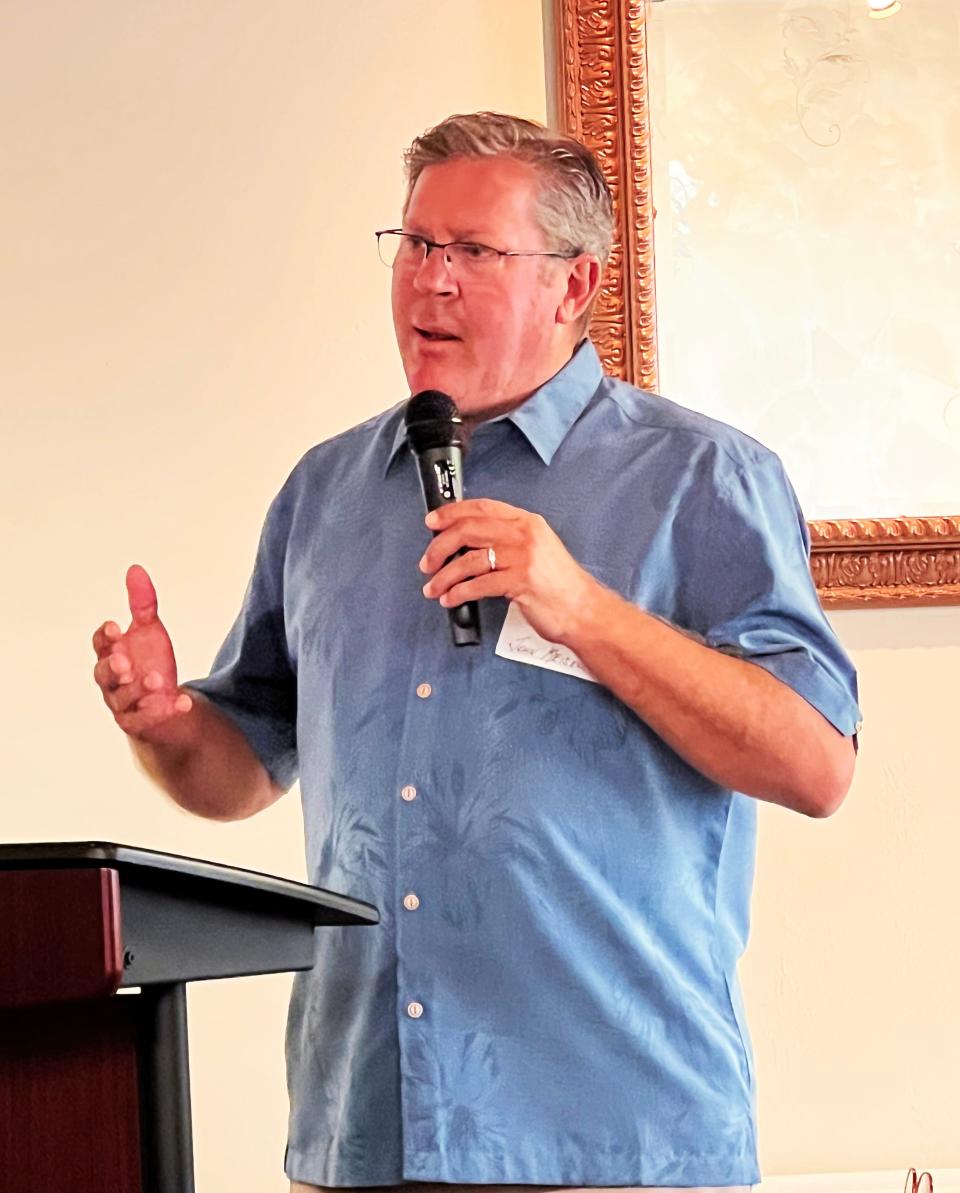North Port makes its case in appeal to overturn circuit court ruling in contraction effort

The three appeals court judges stressed this week that they are not deciding whether a lower court judge was correct in directing the North Port City Commission to reconsider its rejection of a citizens petition to de-annex land west of the Myakka River.
Instead, the judges explained that their review in an appeal filed by the city of North Port is limited to whether due process was followed and whether the lower court's decision departed from essential requirements of the law.
Second District Court of Appeal Judge Robert J. Morris, Jr. in an attempt to frame the proceedings before him and Judges Nelly N. Khouzam and Anthony K. Black, said it was clear that issue was central.
Related: Judge orders North Port City Commission to reconsider decision on contraction of city limits
Last November 12th Circuit Judge Hunter Carroll ordered the North Port City Commission to reconsider its decision against a petition from the West Villagers for Responsible Government seeking to remove land west of the Myakka River from the city.
Carroll declined to conduct a rehearing himself on Dec. 29 and noted that the city based its decision on whether contraction of the city limits should be done rather than if it can be done.
“The circuit court held that the city may only reject a petition for contraction based on lack of feasibility,” Morris said, addressing North Port's arguments, then later added, “the bottom line is the court determined feasibility in a way you didn’t care for.”
Morris then cited a 1995 Florida Supreme Court ruling in a Haines City case in which the court ruled that if a decision was made according to “the form of the law and the rules prescribed for rendering it, although it may be erroneous in its conclusion as applied the the facts, it is not an illegal or regular act remedial on certiorari.
“The Supreme Court is basically suggesting that your issue with the word feasibility – even if you’re right and the circuit court is wrong – that’s not a departure from the essential requirements of the law,’ Morris said, then asked the city's counsel, Nikki Day of the Tampa-based law firm of Bryant Miller Olive, to make her case.
A definition of 'feasibility'
Day noted that Florida law offered direction for city staff to conduct a study of feasibility – which it did, along with the aid of its consultant, Munylitics – and then for the City Commission to either reject the petition for contraction outright or draw up an ordinance to shrink they city’s boundaries, which would then be subject to two public hearings.
After those two hearings the city commission could still vote against de-annexation.
“That is the directive and the preemptive charge to the City Commission,” Day said.
Khouzam observed that state statutes don’t define feasibility.
“With all due respect, your position, you’re injecting added factors under feasibility that’s nowhere near set forth in the statute,” Khouzam said.
“The circuit court basically looked at the plain language and interpreted feasibility as capable of being done,” she continued, “Where in the statute does it have in there all these other factors that the city is saying that it considered?
“Aren’t you reading that into the definition of feasibility?”
Day countered that “the fact that feasibility is not defined in the statute does not require that it be given its most narrow application.”
Earlier: North Port rejects push to contract city limits
In its April 29, 2021 denial of a petition by the West Villagers for Responsible Government, the City Commission cited five key points: the land met the criteria for annexation under state statute 171.043; contraction was not in the best interest of the public health and safety for all residents; was not feasible because of the urbanization of the area; was not in the best interest of the future goals of the city, and it would not be fiscally neutral.
In her argument that Carroll did not follow the essential requirements of the law, Day noted that he did not address four of the five reasons and did not address the urbanization of the area – most of which is being developed as Wellen Park.
Facts vs. conclusions

Luke C. Lirot, the attorney representing the citizens and its board chairman John Meisel, noted that Carroll characterized the city’s finding of facts as conclusions.
“There really are no facts that are anywhere in any of those findings,” Lirot said.
“The circuit court criticized all of those findings as more conclusions than any kind of factual analysis,” he later added.

In a phone interview after the hearing, Lirot said the way the judges posed their questions was encouraging.
Meisel agreed, adding that, “We’re confident that West Villagers for Responsible government will receive an affirmative decision by the appellate court.”
There is no timetable for the appeals court to render its decision, which would not impact whether the residents can continue their pursuit to contract the city.
If it upholds Carroll’s ruling, that would result in the City Commission reconsidering its decision.
If it overturns Carroll’s ruling, the residents can pursue a court filing following the April 29 decision calling for a referendum on contraction of the city’s boundaries. In that event, only those living west of the Myakka River would be allowed to vote on the question.
Earle Kimel primarily covers south Sarasota County for the Herald-Tribune and can be reached at earle.kimel@heraldtribune.com. Support local journalism with a digital subscription to the Herald-Tribune.
This article originally appeared on Sarasota Herald-Tribune: Appeals court hears oral arguments in North Port contraction case

